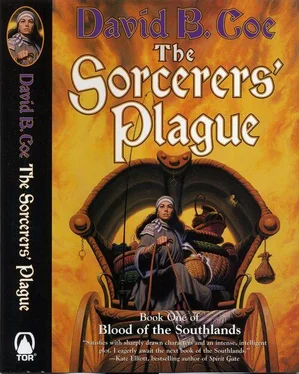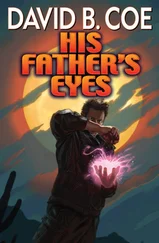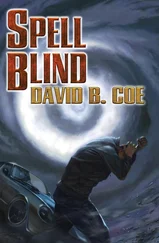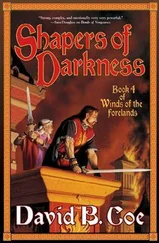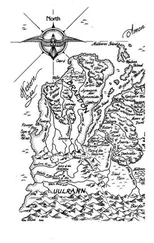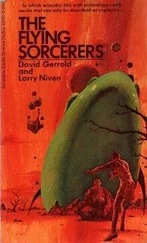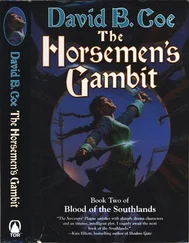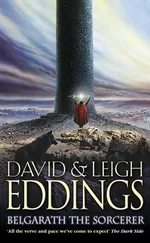David B. Coe
The Sorcerers' Plague
Book One of Blood of the Southlands
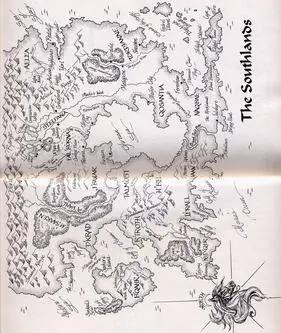
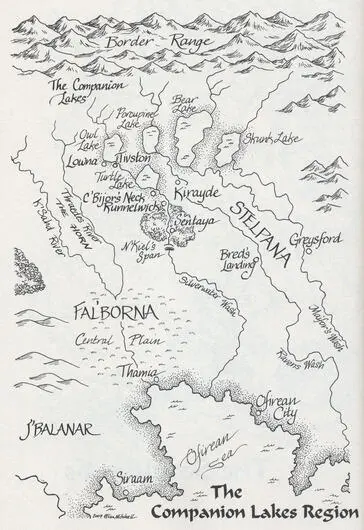
Prologue
SENTAYA, NEAR SILVERWATER WASH,
FERTILITY MOON WAXING, YEAR 1147
She could hear the last of the thunder rumbling in the distance; she could feel it pulsing in the ground beneath her feet, as if the earth itself trembled at the storm's fury. The forest flickered with lightning, strange, frightening shapes flashing before her and then vanishing like wraiths. The rain had ceased long ago, but a cool wind swept among the trees, carving through her damp clothes, chilling her like death.
She still carried the torch, though it offered no light. She didn't remember it dying out. She should have thrown it away, but she couldn't bring herself to let go of it. There was comfort to be found in the feel of that rough wood, in the faint smell of oil that still lingered in the burned remnants of cloth. She should have taken something from the house. There were clothes she might need, toys she still loved, tokens that would help her remember Mama and Papa, Kytha and Baetri. As if she could forget.
Fear had kept her from going inside. She'd gone in once, seen that they were dead. She hadn't found the courage to go in a second time. Then Mama had died, the last of them, and she had run from the village. Was it even a village anymore? The houses remained. The lanes, the marketplace, the garden plots. But with everyone dead, was it still a village?
A moment later she was crying again. How many tears could a girl shed in one night? Did grief and shame know any limits? Did fear and rage?
She didn't know where she was going. She knew only that there was nothing left for her here, and that she couldn't go to the white-hairs again. Not after what had happened this night.
She crumpled to the ground, overcome once more with anguish. She wanted to be sick or to scream or simply to die. Yes, that would have been easiest. Better death than living with the knowledge of what she had done, and what had been done to her. There was no one left to mourn her and there was nothing left for her but to mourn the others. What kind of life was that?
She knew that she couldn't take a blade to herself. She wasn't brave enough for that. But she could throw herself in the wash. Or could she? Even that thought made her quail.
Maybe if she went back. Maybe if she returned to the house and laid herself down beside her dead sisters and her father. Maybe that would be enough to kill her.
Another gust of wind made her shiver, made her teeth chatter. Perhaps she didn't have to move at all. She'd heard of people dying in the wild, killed by cold and hunger and thirst and wild dogs. That could be her.
But just thinking it made her sit up straight and grip her torch tighter. Even wanting to die, she was too much a coward to do anything but survive. She felt that she was betraying those who were gone, though Mama and Papa wouldn't have seen it that way. Young as she was, she knew that much. They would tell her to get up, to start walking again. It doesn't matter where, they would say. Just walk. Find another village. Live!
They were dead because of her. The taste of failure in her mouth was enough to make her gag.
"It wasn't just me," she said aloud, angry, hurt, desperate to believe it. "It's their fault, too. Maybe even more than mine."
Then why did you lie to Mama?
"I didn't mean to lie," she whispered, tears streaking her face.
Lightning flashed overhead, illuminating the wood and making her flinch. Pale faces seemed to loom among the trees, watching her, laughing. She covered her ears and closed her eyes, but it was several moments before the thunder finally rumbled its answer. Eventually she opened her eyes again and her hands dropped to her side.
She sat there for what seemed a long time. Lightning lit the forest several times more, and still the thunder retreated. No more rain fell. Even the storm was leaving her. How she wanted to lie down and close her eyes and never wake again. But as frightened as she was of being alone, death scared her more.
Eventually she climbed to her feet, and still gripping that dead torch, she started down the path once more. Yes, walk, the voices said, urging her on. Find another village. Live.
KIRAYDE, NEAR THE COMPANIONLAKES,
THUNDER MOON WAXING, YEAR I 2 I I
What are we, Grandfather?"
Besh sat back on his heels, wiping beads of sweat from his brow with the back of his hand and looking over at the boy. "What are we?" he repeated. "We're sheep, of course. Why else would we live in the highlands and eat roots and greens?"
Mihas giggled, but quickly grew serious again. Whatever had taken hold of the boy's curiosity didn't want to let go.
"You know what I mean," he said. "What kind of people are we?"
The old man leaned forward again, his knees and elbows cushioned in the soft black earth as he pulled clover and thin sprays of grass out of his garden. The goldroot looked healthy, the tops of the tubers firm and plump. In another half turn he'd harvest them. The time for pulling weeds had long since passed. Was it then vanity that had him crawling about in the dirt, peering into the shadows of the root greens? Ema would have thought so. She would have teased him day and night had she seen him now, an old man too proud to share the earth with clover and grass.
"Grandfather?"
"We are Mettai, Mihas. You know that."
"But what does that mean?"
Besh sat up again. "Why are you asking me this?"
Mihas looked down at the ground, kicking at a clod of dirt with his bare foot. His fine long hair, black as a raven's feathers, hung over his forehead, concealing his eyes.
"Do you remember the peddler who came through here just after the dark of the moons?" the boy asked.
"The old Qirsi?"
"Yes, him. He said something."
"Come here," Besh said, waving the boy over to him.
Mihas walked to where his grandfather was kneeling and sat beside him, looking solemn.
Besh smiled to show the boy he wasn't angry with him. "What did he say to you?"
"He said we were like the creyvnal, that we really didn't know what we were."
"Perhaps he meant it as a compliment. The creyvnal is a powerful beast. Wouldn't you like to have the body of a lion and the head of a wolf?" He smiled; Mihas didn't.
"The creyvnal isn't real, Grandfather. Even I know that."
"You're right. It's not real. But still, the peddler was also right, in a way. The Mettai are like the creyvnal."
"How?"
"Well, we're Eandi. We have dark hair and dark eyes, we live long lives, we're strong like other Eandi. But like the Qirsi, we can use magic."
"But did he mean that we're not real? I mean, I know we are. But was he saying that our powers aren't real?"
Besh eyed Mihas briefly. Then he reached for one of the clovers he had pulled from the ground and held it out to the boy.
Mihas frowned.
"Take it," the old man said.
The boy held out his hand and Besh placed the clover in his palm. "What does `mettai' mean?" he asked. "Do you know?"
"You mean the word?"
"Yes."
"It means blood of the earth."
"Good. Put some dirt in your hand with the clover."
As Mihas did this, Besh pulled his knife from the sheath on his belt and dragged the blade across the back of his own hand. His skin there, tanned and brown from the Growing sun, was scored with dozens of thin white lines, all of them running parallel to the cut he had just made; evidence of a life spent drawing upon earth magic. Like rings within the trunks of the great firs and cedars growing in the forests around Kirayde, the lines on a Mettai's hand could be used to judge his or her age.
Читать дальше
